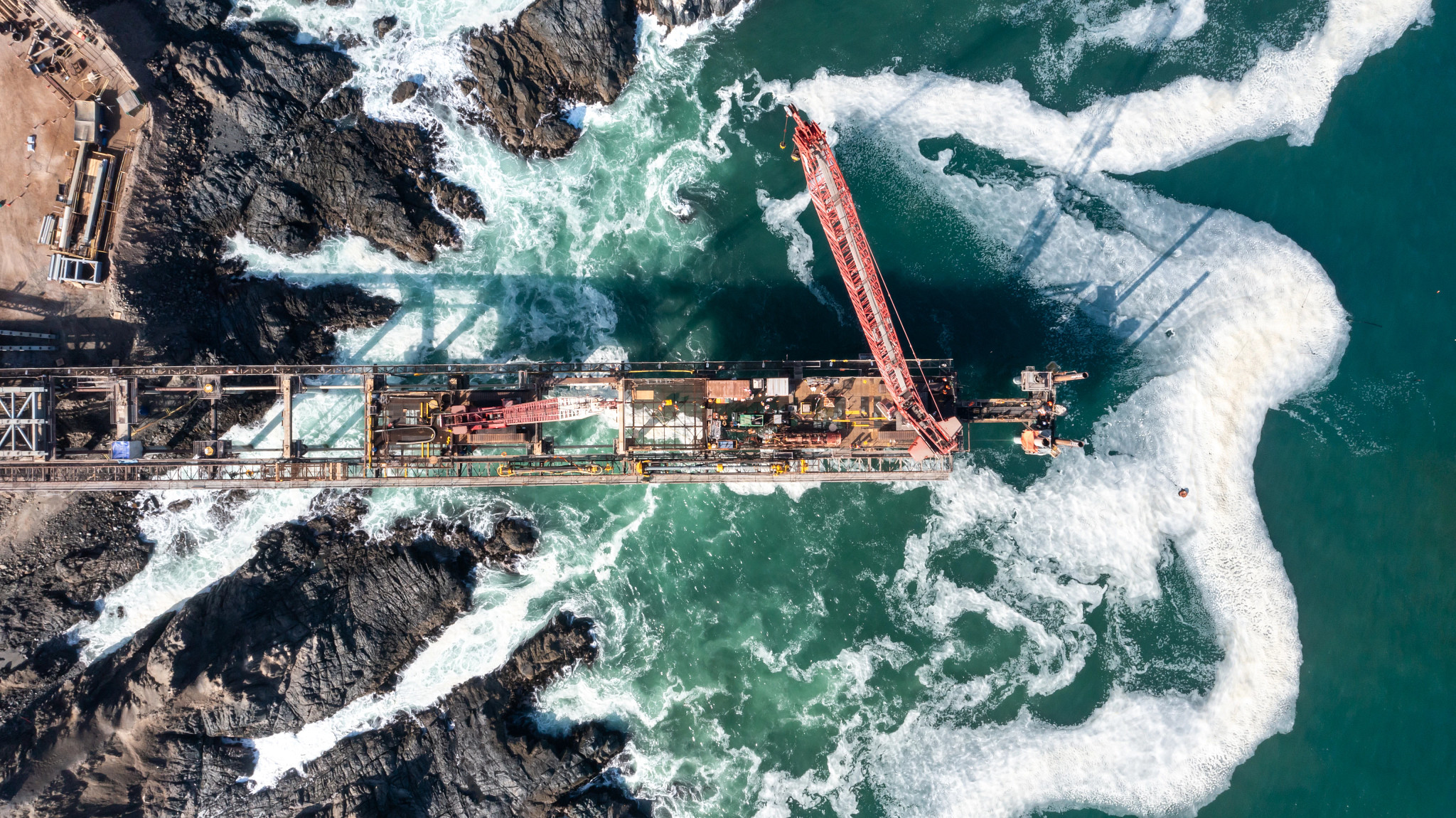Desalination plant at the Quebrada Blanca Phase 2 project, Chile
Reverse Osmosis
QB2 will be the first mining operation in the Tarapacá Region to use 100% desalinated seawater for all its production processes, utilizing reverse osmosis.
Reverse osmosis is a water purification process, which will force seawater through a semi-permeable membrane, removing between 95% and 99% of salt and other unwanted molecules and larger particles from the water.
Treatment Stages
Water is first extracted from the ocean, then enters a dual process that removes oils, algae, and other residue. Next, the pretreated water is filtered via reverse osmosis and two products are obtained: desalinated water and brine. If required, the brine can be diluted before being returned to the ocean to avoid salt concentrations that could affect the marine ecosystems. “The brine discharge will fully comply with regulatory requirements and will be carried with a system of diffusers to release salt in reduced doses so that there are no impacts on the environment," said Ernesto Vásquez, Senior Environmental Advisor at QB2.
The desalinated water goes through a remineralization and chlorination process and is stored in tanks. Then, through pumping stations and a 164-kilometer-long aqueduct, the water is pumped to the QB2 mining operation at 4,300 meters above sea level.
The desalination facility and reverse osmosis process at Quebrada Blanca is a reflection of our Sustainability Strategy and commitment to responsible stewardship in managing water quality in our operations.
Read more about our approach to Water Stewardship on our website.


